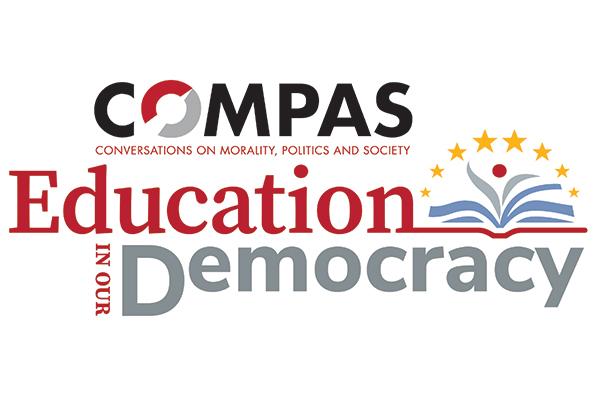
Overview
Recent events, policies, and laws have focused national attention on whether and how educational institutions might be “divisive” environments. In the K-12 context, this has included conversations on two recurring issues: the possible political biases in public curricula and broad questions regarding appropriate responses to students’ identities. Further, in the higher educational context, elements of the underlying concerns have been articulated in response to forms of social and political expression that may impact a shared sense of safe campus community. Join us for a full day of engaging panels and discussion of how educational institutions ought to respond to these contentious matters.
This conference is free and open to all. While we would gladly welcome your participation across the full day of sessions, we recognize that some schedules may permit only partial day attendance. The Keynote and Discussion will be livestreamed, and registration is available here.
This conference is part of CEHV's 2022-23 COMPAS Program on Education in our Democracy.
Schedule
9:00AM-10:30AM: Is our Curriculum 'Divisive'?
Controversies have seemed to intensify regarding the curricular content of schools. With a focus on political content and racialized histories, this panel discusses the ethical stakes of these debates.
- Speaker: Dr. Paula McAvoy (North Carolina State College of Education)
- Speaker: Dr. Hasan Jeffries (Ohio State University)
- Moderator: Dr. Aaron Yarmel (Ohio State University)
11:00AM-12:30PM: Keynote and Discussion: On How Universities Can Foster Free Speech, Promote Inclusion, and Renew Democracy
- Keynote: Dr. Sigal Ben-Porath (Professor, Graduate School of Education and Political Science, University of Pennsylvania) will speak on topics from her forthcoming book, Cancel Wars: How Universities Can Foster Free Speech, Promote Inclusion, and Renew Democracy.
- Her talk will be followed by a conversation with Dr. Melissa L. Gilliam (Provost, Ohio State University). This conversation will be moderated by Dr. Winston C. Thompson (Ohio State University).
2:30PM-4:00PM: Are Our Students' Identities 'Divisive'?
As legislators forward revised boundaries for schools and the persons within them, LGBTQ identities sit at the center of much of the attention. This panel attends to nuanced understandings of these policies and possible responses.
- Speaker: Dr. Zein Murib (Fordham University)
- Speaker: Dr. Cris Mayo (The University of Vermont)
- Speaker: Professor Cliff Rosky (University of Utah)
- Moderator: Dr. Mollie Blackburn (Ohio State University)
Conference Panelists
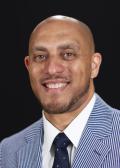
Hasan Kwame Jeffries teaches, researches, and writes about the African American experience from a historical perspective. He has chronicled the civil rights movement in the ten episode Audible Originals series “Great Figures of the Civil Rights Movement,” and has told the remarkable story of the original Black Panther Party in Bloody Lowndes: Civil Rights and Black Power in Alabama’s Black Belt, which has been praised as “the book historians of the black freedom movement have been waiting for.” Hasan has collaborated on several public history projects, including serving as the lead scholar and primary scriptwriter for the $27 million renovation and redesign of the National Civil Rights Museum at the Lorraine Hotel in Memphis, Tennessee, the site of the assassination of Dr. Martin Luther King, Jr. Hasan regularly shares his expertise on African American history and contemporary Black politics through public lectures, op-eds, and interviews with print, radio, and television news outlets, including the New York Times, the Los Angeles Times, NPR, CNN, and MSNBC. He has also contributed to several documentary film projects as a featured on-camera scholar, including the Emmy nominated PBS documentary Black America Since MLK: And Still I Rise. Hasan’s commitment to teaching “Hard History” led him edit Understanding and Teaching the Civil Rights Movement, a collection of essays by leading civil rights scholars and teachers that explores how to teach civil rights history accurately and effectively, and to host the podcast “Teaching Hard History,” a project of the Southern Poverty Law Center’s Learning for Justice division. Hasan also helps school districts develop anti-racism programming and culturally responsive curricular content centered on social studies by conducting professional development workshops for teachers and administrators. An associate professor in the Department of History at The Ohio State University, Hasan takes great pride in opening students’ minds to new ways of understanding the past and the present. For his pedagogical creativity and effectiveness, he has received numerous awards, including Ohio State’s highest commendation for teaching – the Ohio State Alumni Award for Distinguished Teaching. Hasan graduated from Morehouse College with a BA in history, and earned his PhD in American history with a specialization in African American history from Duke University.
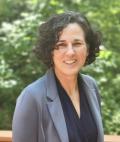
Paula McAvoy is Associate Professor and PhD Coordinator for the Social Studies Program Area of Study in Teacher Education and Learning Sciences at North Carolina State University. She earned her PhD in philosophy of education in 2010 at UW-Madison’s Department of Educational Policy Studies. Since then, she has worked as an assistant professor at Illinois State, an associate program officer at the Spencer Foundation and as the Director of the Center for Ethics and Education at UW-Madison. Prior to this, she taught high school social studies for 10 years at the Foothill Middle College Program in Los Altos, California. McAvoy's research focuses on philosophical and empirical questions concerning the relationship between schools and democratic society. She is the co-author of The Political Classroom: Evidence and Ethics in Democratic Education, which won the Grawemeyer Award for Education and the AERA book award.

Cris Mayo is Professor and Director of Interdisciplinary Studies in Education and Educational Leadership and Policy master’s degrees in the Department of Education at the University of Vermont. Mayo’s publications include LGBTQ Youth and Education: Policy and Practices, Gay-Straight Alliances and Associations Among Youth in Schools, and Disputing the Subject of Sex: Sexuality and Public School Controversies, as well as articles in Teachers College Record, Educational Researcher, Educational Theory, Policy Futures in Education, and Philosophy of Education, among others. Mayo is the editor-in-chief of the Oxford Encyclopedia on Gender and Sexuality in Education and has co-edited collections with Mollie Blackburn and Nelson Rodriguez.
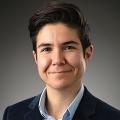
Zein Murib Zein Murib, PhD (them/them) is Assistant Professor of Political Science at Fordham University. Their research and teaching interests are located at the intersection of race, gender, and sexuality; interest groups and social movements; and American politics, and their scholarship has been published in Politics & Gender, Laws, Signs, and Politics, Groups, and Identities as well as other peer-reviewed publications. Their forthcoming book (Oxford University Press) is provisionally titled Terms of Exclusion: Rightful Citizenship Claims and LGBT Political Identity Construction. They are a frequent contributor of political analysis to the Washington Post's Monkey Cage and can be found on Twitter at @zeinmurib.
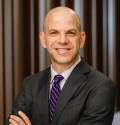
Clifford Rosky is Professor of Law at the University of Utah’s S.J. Quinney College of Law, where he teaches courses on constitutional law, criminal law, mindfulness and law, and sexuality, gender, and law. His recent scholarship includes "Anti-Gay Curriculum Laws," 117 Columbia Law Review 1461 (2017); "Scrutinizing Immutability," 53 Journal of Sex Research 363 (2016) (with Lisa Diamond); "Same-Sex Marriage and Children's Right to Be Queer," 22 GLQ: A Journal of Gay and Lesbian Studies 531 (2016); "Still Not Equal: A Report from the Red States," in After Marriage Equality: The Future of LGBT Rights (NYU 2016). Rosky has received multiple awards for his teaching and pro bono service, and he is a two-time recipient of the Dukeminier Award, which recognizes the best legal scholarship on sexuality and gender published each year. In 2015, he received the Equality Award from the Human Rights Campaign, the country's largest civil rights organization working to achieve equality for LGBTQ people. He has provided legal commentary on LGBTQ rights to many press outlets, including the N.Y. Times, Washington Post, L.A. Times, Associated Press, Agence France-Press, The Economist, National Public Radio, Newsweek and Time. Rosky has helped draft and advocate for SB 296 (2015), SB 196 (2017), R277-613 (2018), SB 103 (2019), R156-61 (2020), five Utah laws that protect LGBT people from discrimination in bullying, conversion therapy, hate crimes, education, employment, and housing. In addition, he has served as an expert witness and counsel of record in the country's first lawsuits successfully challenging the constitutionality of statewide anti-LGBTQ curriculum laws in Arizona, South Carolina, and Utah. He currently serves on the expert panel revising "Ending Conversion Therapy: Supporting LGBTQ Youth," a report issued by the Substance Abuse and Mental Health Administration of the U.S. Department of Health and Human Services. In recent years, Rosky began teaching a new course called Mindful Lawyering, which examines the relationship between the practice of meditation and the practice of law. Rosky has been practicing meditation for 20 years, and has spent more than 30 days on silent retreat. He is a member of the International Mindfulness Teachers Association, and he has served on the Board of Directors of the Mindfulness in Law Society, the Executive Committee of the Balance Section of the American Association of Law Schools, and the Utah State Bar Lawyer and Judge Well-Being Committee. He is certified as a professional mindfulness teacher by the International Mindfulness Teachers Association and trained as a mindfulness facilitator at UCLA's Mindfulness Awareness Research Center in the Semel Institute for Neuroscience and Human Behavior.
Moderator: Mollie Blackburn (Professor, Teaching and Learning, Ohio State University)
Moderator: Aaron Yarmel (Associate Director, CEHV, Ohio State University)
